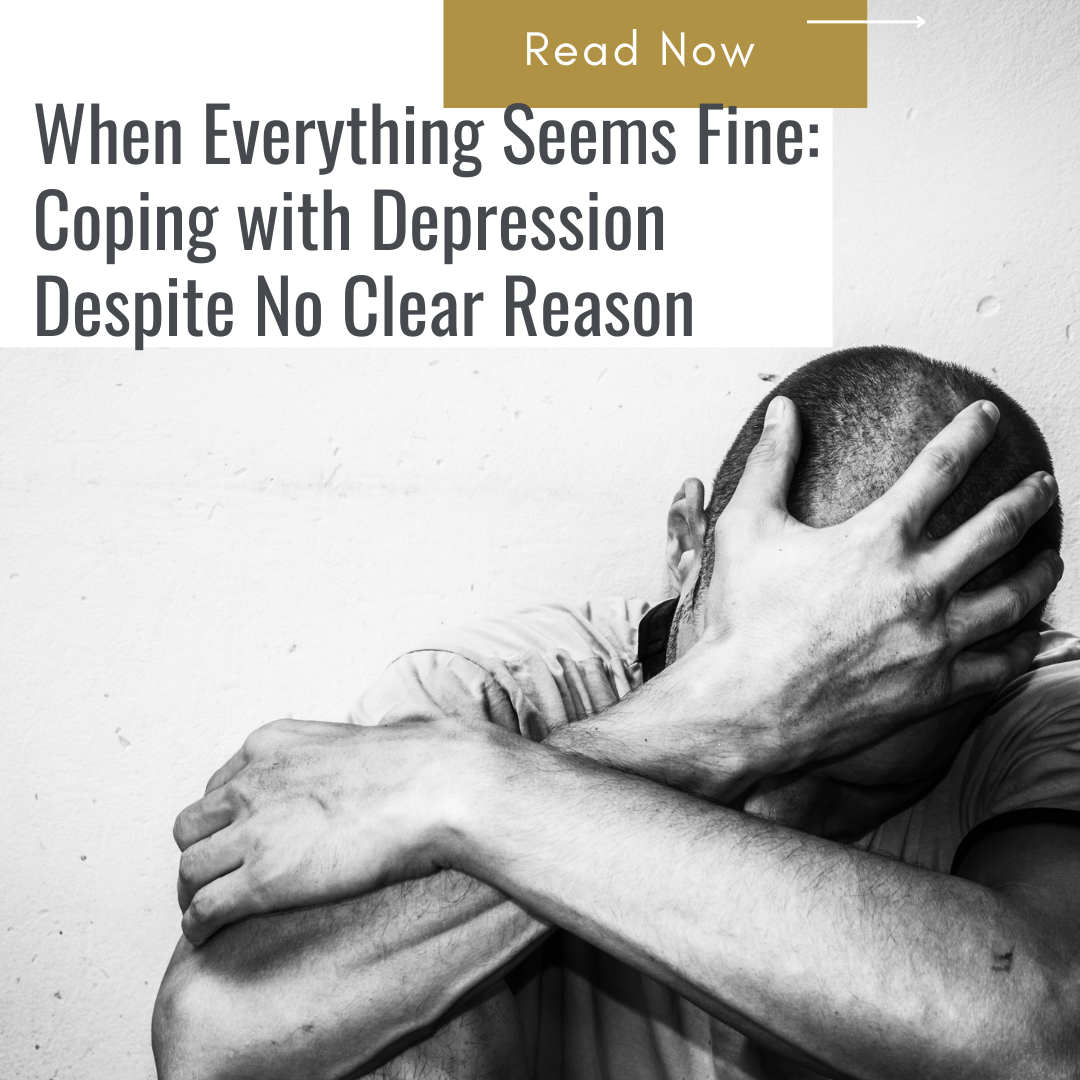Do you ever find yourself feeling depressed, even when everything seems to be going well in your life? You’re not alone. Depression doesn’t always adhere to logic or external circumstances. It can creep in unexpectedly, leaving you feeling lost and confused. In this article, we’ll delve into the intricacies of depression and explore coping strategies for those moments when you feel down despite having no apparent reason to do so.
Understanding Depression
Depression is more than just feeling sad; it’s a complex mental health condition that can impact various aspects of your life. It often manifests as a persistent feeling of sadness, emptiness, or hopelessness. However, what sets depression apart is its ability to linger despite favorable circumstances.
Recognizing the Signs
It’s essential to recognize the signs of depression, even when they don’t align with your current situation. These may include changes in appetite or sleep patterns, loss of interest in activities you once enjoyed, difficulty concentrating, and feelings of worthlessness or guilt.
You may be a successful executive with a loving family and a fulfilling social life. However, despite your apparent success, you often finds yourself feeling inexplicably sad and empty. You struggles to understand why you feel this way when everything in your life seems to be going well.
Maybe you’ve noticed that you’ve been experiencing changes in your sleep patterns lately. You’ve been sleeping more than usual and struggles to get out of bed in the morning, despite having no apparent reason to feel tired. Additionally, you’ve lost interest in your favorite hobbies and find it challenging to concentrate at work.
Coping Strategies
When you find yourself feeling depressed without a clear reason, it’s crucial to practice self-care and seek support. Here are some coping strategies that may help:
- Reach Out: Don’t hesitate to reach out to friends, family, or a mental health professional for support.
- Engage in Activities: Engage in activities that bring you joy or a sense of accomplishment, even if you don’t feel like it at first.
- Creative Expression: Engaging in creative activities such as painting, writing, or playing a musical instrument can be therapeutic. You don’t need to be an expert to enjoy these activities – the process itself can be rewarding and provide an outlet for your emotions.
- Socializing: Spending time with friends or loved ones, even when you don’t feel like it, can provide a sense of connection and support. Consider reaching out to someone you trust for a coffee date, phone call, or even just a chat online.
- Volunteering: Helping others in need can give you a sense of purpose and fulfillment. Look for opportunities to volunteer in your community, whether it’s at a local food bank, animal shelter, or community garden.
- Setting and Achieving Goals: Start with small, achievable goals that you can work towards, such as organizing your closet, completing a household chore, or finishing a work task. Crossing items off your to-do list can give you a sense of accomplishment and motivation to tackle more significant challenges.
- Spending Time in Nature: Spending time outdoors, whether it’s going for a hike, having a picnic in the park, or simply sitting in your backyard, can have a calming effect on your mind and body. Connecting with nature can help reduce stress and improve your overall well-being.
- Learning Something New: Challenge yourself to learn a new skill or hobby, such as cooking a new recipe, taking an online course, or learning a musical instrument. The process of learning and mastering something new can be both stimulating and rewarding.
- Remember, the goal is not necessarily to feel motivated or enthusiastic right away, but rather to take small steps towards engaging in activities that have the potential to bring you joy or a sense of accomplishment. Be patient with yourself and give yourself credit for any effort you make, no matter how small.
- Practice Mindfulness: Mindfulness techniques, such as meditation or deep breathing exercises, can help ground you in the present moment.
- Stay Active: Regular physical activity has been shown to improve mood and reduce symptoms of depression.
- Limit Stress: Identify sources of stress in your life and take steps to minimize their impact.
Feeling depressed when you feel like there is not reason can be incredibly challenging, but it’s essential to remember that you’re not alone, and help is available. By understanding the complexities of depression and implementing coping strategies, you can navigate through these difficult moments and emerge stronger on the other side.
Eight Things to Focus On:
- Understand that feeling depressed without an apparent reason is not uncommon.
- Reach out to friends, family, or a mental health professional for support.
- Engage in activities that bring you joy or a sense of accomplishment.
- Practice mindfulness techniques to ground yourself in the present moment.
- Prioritize regular physical activity to improve your mood.
- Identify and limit sources of stress in your life.
- Seek professional help if you’re struggling to cope with depression.
- Remember that it’s okay to not be okay, and you deserve support and compassion.
If you’re struggling with depression, know that you’re not alone. Reach out to us by calling (469)447-8246 for support and work with Tessa, Shuqueta, Jaci or Elizabeth to explore coping strategies to navigate through difficult moments. Your mental health matters, and you deserve the support and compassion to heal.
TLDR: Depression doesn’t always follow a logical pattern, and it’s okay to feel down even when everything seems fine. Understanding the complexities of depression and implementing coping strategies can help you navigate through these difficult moments effectively.

